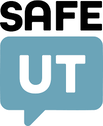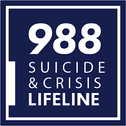Course Catalog
Language Arts 4.0 Credits
Language Arts - Three courses from the Foundations plus one credit from the Applied and Advanced list
|
Foundation Courses
|
Applied and Advanced Courses
|
|
LANGUAGE ARTS 10 (1.0 Credit)
LANGUAGE ARTS 10 HONORS (1.0 Credit) LANGUAGE ARTS 11 (1.0 Credit) AP LANGUAGE ARTS 11 (1.0 Credit) |
LANGUAGE ARTS 12 (1.0 Credit)
CREATIVE WRITING (.5 Credit) HUMANITIES (.5 Credit) JOURNALISM (1.0 Credit) CE ENGLISH 1010 (1.0 Credit) CE ENGLISH 2010 (1.0 Credit) CE ENGLISH 2200 (1.0 Credit) Spanish III (1.0 Credit) AP Spanish (1.0 Credit) |
*Language Arts 11 can be replaced with either AP course listed in the advanced category
* Language Arts 9 counts toward the 4.0 required Language Arts Credit.
* Language Arts 9 counts toward the 4.0 required Language Arts Credit.
Mathematics 3.0 Credits
|
Foundation Courses
|
Applied and Advanced Courses
|
|
SECONDARY MATH II (1.0 Credit)
SECONDARY MATH II EXT (1.0 Credit) SECONDARY MATH III (1.0 Credit) SECONDARY MATH III EXT (1.0 Credit) |
ACCOUNTING I (.5 Credit)
AP CALCULUS (1.0 Credit) MATHEMATICAL DECISION MAKING FOR LIFE (1.0 CREDIT) INTRODUCTION TO STATISTICS (1.0 CREDIT) CE MATH 1030 (1.0 Credit) CE MATH 1040 (1.0 Credit) CE MATH 1050 (1.0 Credit) CE MATH 1060 (1.0 Credit) |
*With written permission Secondary Math III can be replaced by
an applied math course
an applied math course
Science 3.0 Credits
A total of 2.0 credits from two of the five areas of science on the Foundation Courses list plus 1.0 credit from the Foundation Courses list or Applied and Advanced Courses list
|
Foundation Courses
|
Applied Courses
|
|
BIOLOGY (1.0 CREDIT)
BIOLOGY HONORS (1.0 CREDIT) BIOLOGY AG SCIENCE (1.0 CREDIT) AP BIOLOGY/CE BIOLOGY 1610/1615 (1.0 CREDIT) CE HUMAN BIO 1200 (1.0 CREDIT) CHEMISTRY (1.0 CREDIT) AP CHEMISTRY (1.0 CREDIT) CE CHEMISTRY 1150/1115 (1.0 CREDIT) PHYSICS (1.0 CREDIT) CE PHYSICS 2010/2015 (1.0 CREDIT) COMPUTER PROGRAMMING 2 (.5 CREDIT) |
ANIMAL SCIENCE (1.0 CREDIT)
ADV ANIMAL SCIENCE (1.0 CREDIT) ASTRONOMY (1.0 CREDIT) CE PHYS 1040 ASTRONOMY (1.0 CREDIT) BIOTECHNOLOGY/CE BIOTECHNOLOGY (1.0 CREDIT) ELECTRONICS (1.0 CREDIT) ENGINEERING PRINCIPLES I (1.0 CREDIT) EQUINCE SCIENCE (1.0 CREDIT) FLORICULTURE (1.0 CREDIT) GENETICS (1.0 CREDIT) MEDICAL ANATOMY & PHYSIOLOGY (1.0 CREDIT) PLANT & SOIL (1.0 CREDIT) VETERINARY ASSISTANT (1.0 CREDIT) |
Social Science 3.0 Credits
|
Foundation Courses
|
Social Studies Electives
|
|
WORLD CIVILIZATION (.5 CREDIT)
WORLD CIVILIZATION HONORS (1.0 CREDIT) US HISTORY (1.0 CREDIT) AP US HISTORY (1.0 CREDIT) US GOVERNMENT & CITIZENSHIP (.5 CREDIT) AP US GOVERNMENT & POLITICS (.5 CREDIT) CE POLITICAL SCIENCE 1100 (1.0 CREDIT) |
PSYCHOLOGY (.5 CREDIT)
AP PSYCHOLOGY (1.0 CREDIT) SOCIOLOGY (.5 CREDIT) AP EUROPEAN HISTORY (1.0 CREDIT) |
Physical Education / Healthy Lifestyles 2.0 Credits
|
Foundation Courses
Required |
Elective PE Courses
|
|
HEALTH II (.5 CREDIT)
FIT FOR LIFE (.5 CREDIT) *Participation Skills (0.5 Offered at DMS)
|
BODY TONING (.5 CREDIT)
ADV BODY TONING (.5 CREDIT) athletes DANCE 1 (.5 CREDIT) DANCE 2 (.5 CREDIT) INDIVIDUAL LIFETIME ACTIVITIES (.5 CREDIT) SOCIAL DANCE (.5 CREDIT) SOCIAL DANCE 2 (.5 CREDIT) WEIGHT TRAINING (.5 CREDIT) ADV WEIGHT TRAINING (.5 CREDIT) athletes YOGA (.5 CREDIT) |
Financial Literacy 0.5 Credits
|
FINANCIAL LITERACY (.5 CREDIT)
CE FINANCIAL LITERACY (1.0 CREDIT) |
Digital Studies 0.5 Credits
|
COMPUTER PROGRAMMING 1 (.5 CREDIT)
COMPUTER PROGRAMMING 2 (.5 CREDIT) INTRO TO PYTHON 1 (.5 CREDIT) INTRO TO PYTHON 2 (.5 CREDIT) WEB DEVELOPMENT (.5 CREDIT) |
*Business Office Specialist (0.5 Offered at DMS or Utah Online)
Fine Arts 1.5 Credits
|
AP ART & DESIGN (1.0 CREDIT)
CERAMICS 1 & 2 (.5 CREDIT) DRAWING 1 & 2 (.5 CREDIT) HS ART FOUNDATIONS (.5 CREDIT) SCULPTURE 1 (.5 CREDIT) PAINTING (.5 CREDIT) DRAWING (.5 CREDIT) DRAWING II (.5 CREDIT)
|
ADVANCED ORCHESTRA (1.0 CREDIT)
BAND III - PERCUSSION (1.0 CREDIT) BAND III - SYMPHONIC (1.0 CREDIT) CHORUS III (1.0 CREDIT) CHORUS III - MADRIGALS (1.0 CREDIT) CHORUS III LADIES (TREBLE) CHOIR (1.0 CREDIT) FILM & MEDIA ARTS 2 (.5 CREDIT) |
DANCE 1 (.5 CREDIT)
DANCE 2 (.5 CREDIT) SOCIAL DANCE 1 (.5 CREDIT) SOCIAL DANCE 2 (.5 CREDIT) THEATER TECH 1 (.5 CREDIT) THEATER TECH 2 (1.0 CREDIT) THEATER FOUNDATIONS (.5 CREDIT) THEATER FOUNDATIONS (.5 CREDIT) THEATER FOUNDATIONS II (1.0 CREDIT) |
Career & Technical Education 1.0 Credits
Find out about graduating with a CTE Pathway!
|
Agriculture, Food & Natural Resources
AGRICUTURAL BIOLOGY (1.0 CREDIT)
ANIMAL SCIENCE (1.0 CREDIT) ADVANCE ANIMAL SCIENCE (1.0 CREDIT) EQUINE SCIENCE (1.0 CREDIT) FLORICULTURE (1.0 CREDIT) PLANT & SOIL (1.0 CREDIT) VETERINARY ASSISTANT (1.0 CREDIT) Arts, Audio/Visual Technology
BASIC DIGITAL PHOTOGRAPHY (.5 CREDIT)
ADVANCED COMMERICAL PHOTOGRAPHY (.5 CREDIT) FILM & MEDIA ARTS 2 (.5 CREDIT) DRAWING 1 (.5 CREDIT) DRAWING II (.5 CREDIT) FILM & MEDIA ARTS 2 (.5 CREDIT) ELECTRONICS (1.0 CREDIT) GRAPHIC PRINT DESIGN 1 (.5 CREDIT) GRAPHIC PRINT DESIGN 2 (.5 CREDIT) GRAPHIC PRINT DESIGN 3/CE DES 1100 INTRO TO DIGITAL DESIGN (1.0 CREDIT) CE DES 1610 SCREEN PRINTING (1.0 CREDIT) Architecture, Construction & Transportation
INTRO TO AUTO (1.0 CREDIT)
AUTO SERVICE TECH (1.0 CREDIT) ENGINEERING PRINCIPLES (1.0 CREDIT) SMALL VEHICLE TECH (1.0 CREDIT) WOODS 1 (.5 CREDIT) WOODS 2 (1.0 CREDIT) WOODS 3 (1.0 CREDIT) Business, Finance & Marketing
ACCOUNTING (.5 CREDIT)
BUSINESS LAW (.5 CREDIT) ENTREPRENEURSHIP (.5 CREDIT) CE ENTREPRENEURSHIP 2600 (1.0 CREDIT) MARKETING (.5 CREDIT) SPORTS & ENTERTAINMENT MARKETING (.5 CREDIT) |
Computer Science & Information
COMPUTER PROGRAMMING 1 (.5 CREDIT)
COMPUTER PROGRAMMING 2 (.5 CREDIT) COMPUTER SYSTEMS 1 (.5 CREDIT) COMPUTER SYSTEMS 2 (.5 CREDIT) GAMING DEVELOPMENT FUNDAMENTALS (.5 CREDIT) GAMING DEVELOPMENT FUNDAMENTALS 2 (.5 CREDIT) WEB DEVELOPMENT (.5 CREDIT) Education & Law Enforement
TEACHING AS A PROFESSION (.5 CREDIT)
TEACHING AS A PROFESSION II (.5 CREDIT) INTRO TO LAW ENFORCEMENT (.5 CREDIT) Health Sciences
INTRO TO HEALTH SCIENCE (.5 CREDIT)
MEDICAL ANATOMY & PHYSIOLOGY (1.0 CREDIT) CE HLOC 1000 MEDICAL TERMINOLOGY (1.0 CREDIT) SPORTS MEDICINE (1.0 CREDIT) Human Services
CHILD DEVELOPMENT (.5 CREDIT)
INDIVIDUAL & FAMILY RELATIONSHIPS (.5 CREDIT) FASHION DESIGN STUDIO (.5 CREDIT) FOOD & NUTRITION 1 (.5 CREDIT) CULINARY ARTS 1 (.5 CREDIT) PROSTART (1.0 CREDIT) |
Elective Credit 7.0-10.0 Credits
Elective credit can be generated from any of the classes listed in the Language arts, Mathematics, Science, Social Science, Physical Education, Fine Arts, CTE, or Elective category
|
Foreign Language
|
|
AMERICAN SIGN LANGUAGE I (1.0 CREDIT)
CE ASL 1010 (1.0 CREDIT) AMERICAN SIGN LANGUAGE 2 (1.0 CREDIT) CE ASL 1020 (1.0 CREDIT) SPANISH 1 (1.0 CREDIT) SPANISH 2 (1.0 CREDIT) SPANISH 3 (1.0 CREDIT) SPANISH 4 (1.0 CREDIT) AP SPANISH (1.0 CREDIT) CE 3117 SPANISH DLI (1.0 CREDIT) AP CHINESE LANGUAGE & CULTURE (1.0 CREDIT) CE CHINESE 3117 (1.0 CREDIT) |
AFJROTC1 (1.0 CREDIT)
AS400 PRINCIPLES OF MANAGEMENT (1.0 CREDIT) AS500 AVIATION HONORS GROUND SCHOOL (1.0 CREDIT) AFJROTC 52 SCIENCE OF FLIGHT & SMALL UNMANNED AERIAL SYSTEMS (1.0 CREDIT) Other
YEARBOOK (1.0 CREDIT)
PEER TUTOR (.5 CREDIT) TEACHER AID (.5 CREDIT) COUNSELOR AID (.5 CREDIT) MEDIA AID (.5 CREDIT) DRIVERS EDCUATION (.25 CREDIT) |
Academic Support
BASIC ACADEMIC SKILLS (1.0 CREDIT)
EXCEL (1.0 CREDIT)
ESOL (1.0 CREDIT)
EXCEL (1.0 CREDIT)
ESOL (1.0 CREDIT)
*Please note fee's are subject to change without notice.
*Not all fee's are listed.
*CE (Concurrent Enrollment) have additional fee's than listed. Typically $5.00 per credit hour plus books, labs and supplies.
*Please check with the finance office to get the most current fee sehedule.
*Not all fee's are listed.
*CE (Concurrent Enrollment) have additional fee's than listed. Typically $5.00 per credit hour plus books, labs and supplies.
*Please check with the finance office to get the most current fee sehedule.



